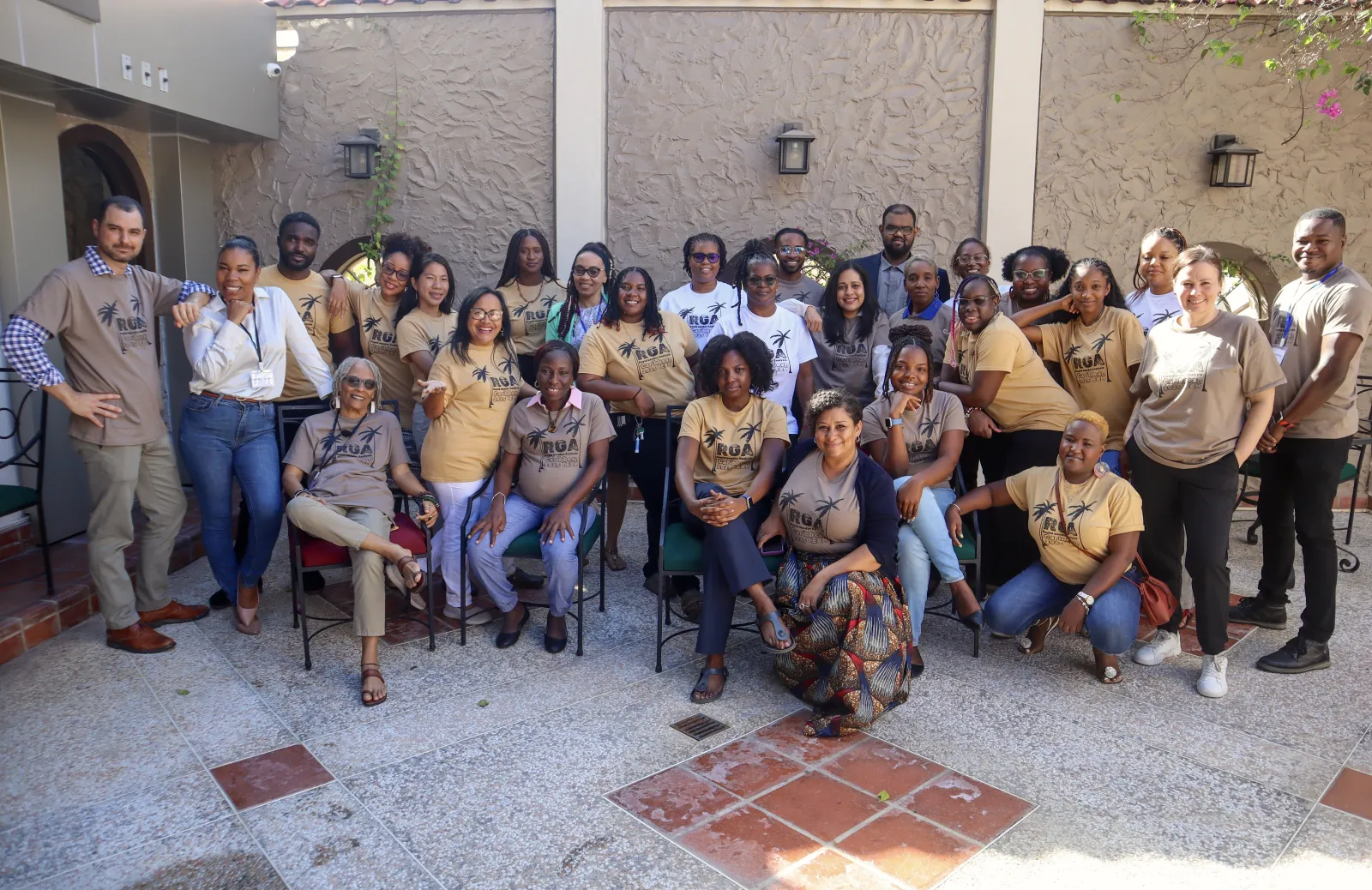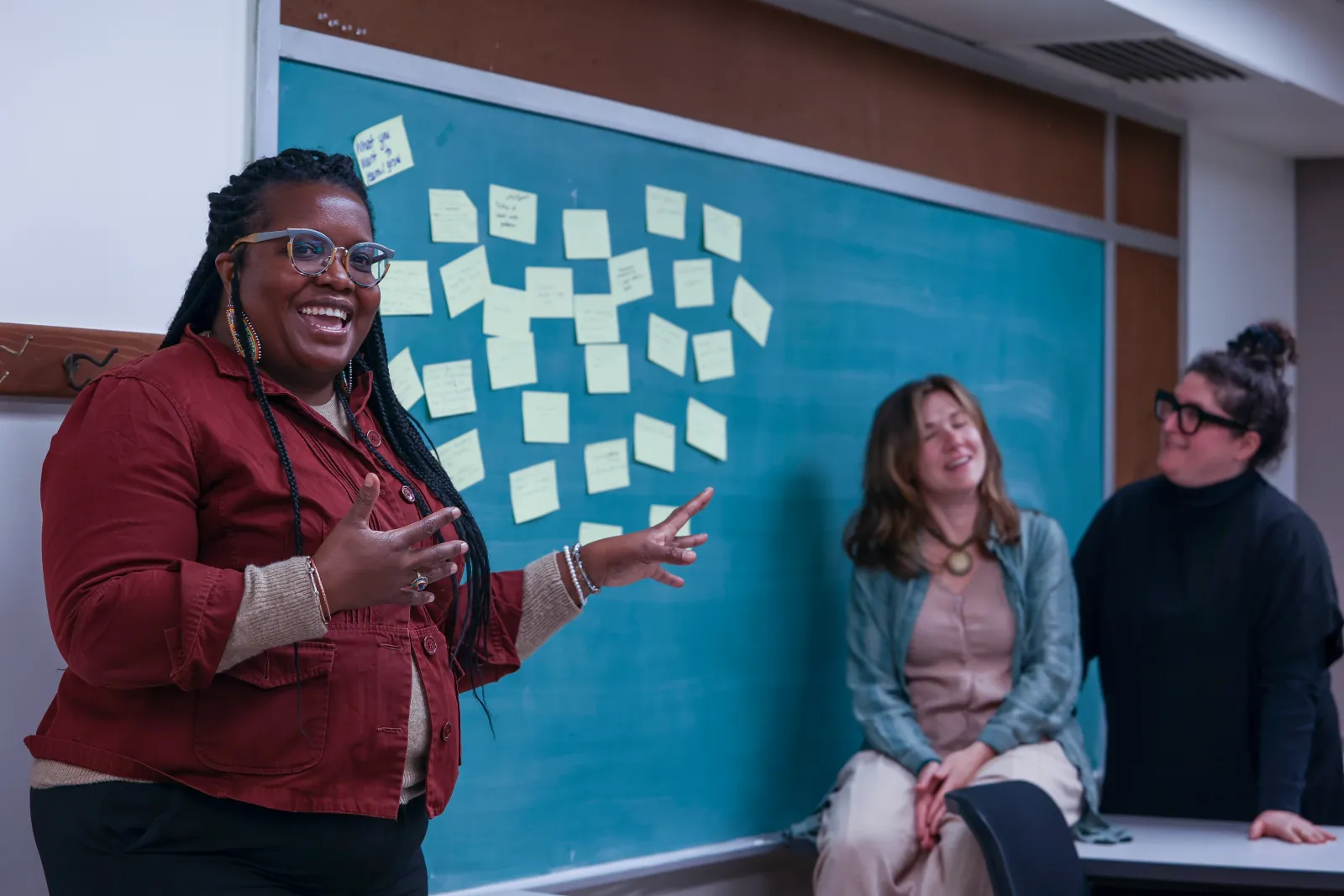Caribbean-Centered Scholarship Addressing Disaster and Recovery in The Bahamas

Since her days as a scholar-in-residence with the Bahamas Crisis Centre in 2022, Associate Professor of Social Work and Social Research Tamarah Moss's scholarship has been community-centered with an emphasis on being trauma-informed and culturally responsive. During this time, she supported community-based work on understanding the impact of 2019's Hurricane Dorian, featuring the significance of mental health as part of community recovery and restoration.
In January, Moss represented the Crisis Centre and attended the Rapid Gender Analysis (RGA) Training in Trinidad and Tobago. This inaugural training engaged with 13-country representatives and was sponsored by CARE and the Caribbean Gender Alliance, two groups dedicated to providing holistic care across the Caribbean. In line with this mission, the RGA training teaches attendees about the different needs, capacities, and coping strategies of women, men, boys, and girls in crisis situations across gender identity, age, and disability.
Moss will delve more deeply into her disaster response and recovery scholarship by developing a Gender in Brief report with the onset of the 2025 Atlantic hurricane season. Done in partnership with Dr. Sandra Dean Patterson (Bahamas Crisis Centre) and various non-governmental organizations (NGOs), this report will include the compilation and analysis of existing secondary disaggregated statistics on sex, age, and disability. This report will be used to inform governmental and NGO-based community engagement before it is needed on the ground. The hope is that it will provide background on more meaningful and tailored assistance across the archipelago of The Bahamas during emergencies. This work proves to be particularly relevant in the context of global climate change and ultimately climate justice. Moss works in tandem with the statement made by Cherisse Braithwaite-Joseph, CEO of The Cropper Foundation, that “civil society must be a partner from the visioning stage, not just brought in to implement what’s already been decided.”
To kick off her report, Moss co-facilitated meetings in The Bahamas during late May 2025 with Jonathan Arogeti (CARE) and Nadella Oya (Caribbean Gender Alliance), along with over twenty organizations in New Providence (Nassau) and the Family Islands. There, she discussed lessons learned from Hurricane Dorian and other disasters, along with strategies for more effective disaster response and recovery. She will continue to conduct gender analysis across gender identity, age, and disability this summer.
"Engagement is a critical part of human and social development, especially in the Caribbean region that remains vulnerable to natural disasters such as hurricanes. This work bridges the importance of intersectional identities, the environment, social justice and trauma-informed approaches that are culturally informed and responsive.” -–Moss
Moss, trained in social work and public health, has been a longstanding volunteer with the Bahamas Crisis Centre where she serves as the volunteer director of research and evaluation. She is also the co-convener of the Mellon-funded Tri-Co Caribbean Studies Working Group with Assistant Professor of Africana Studies Paul Joseph López Oro. Her scholarship continues with the formation of the Network of Community Organizational Partnerships during Emergencies (The Bahamas).
